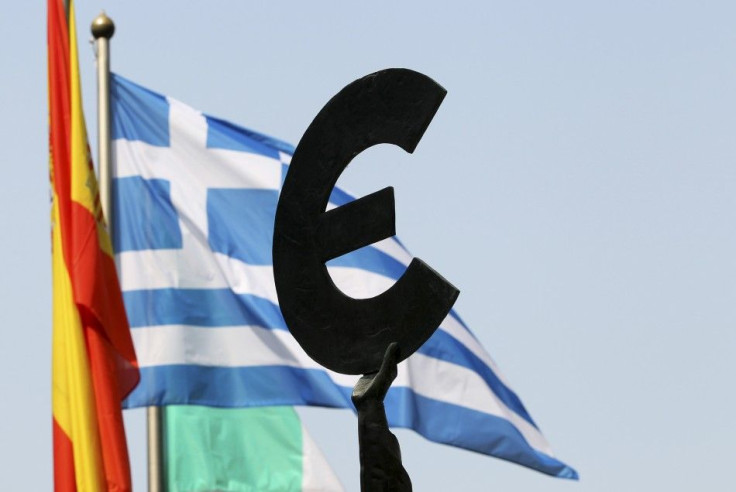Greece Election 2012 - 'Referendum' On The Euro

On Sunday, the people of Greece will go to the polls for the second time in just over six weeks to elect new leadership.
At stake is the country's continued membership in the euro currency, and the future of the euro zone itself. Here is our handy guide to the key events and implications you can expect going forward.
Why Is This Election Important?
This second round is seen, more than anything, as a referendum on Greece's continued membership in the euro zone. If the people elect a parliament of anti-bailout parties who refuse to abide by the terms of the IMF/EU deal, then international lenders will stop providing rescue loans. The country would then default and be forced to leave the euro zone.
Although Greece's economy makes up only 2 percent of the euro zone's overall economic output, a default would send shock waves throughout the international financial system. Investors, fearful that other countries such as Italy or Spain could also default, would drive up the cost of borrowing to unsustainable levels -- forcing them to also seek bailouts.
European banks would stop lending to each other, unsure if they would ever get the money back. Banks around the world would be unwilling to lend each other money, leading to a credit crunch last seen after Lehman Brothers collapsed in 2008.
To prevent this scenario from happening, European leaders, most prominently German Chancellor Angela Merkel, has urged the Greeks to embrace austerity.
Timing
The election will take place on Sunday, with polling stations opening at 5 a.m. GMT, closing at 5 p.m. Exit polls should be announced immediately after close on Sunday.
However, there may be a delay in some regions, with very close results requiring a recount.
Key Players and Parties
Alexis Tsipras- Syriza
The Radical Coalition of the Left (abbreviated to SYRIZA) and its leader Tsipras are Greece's second largest party. The disparate group of left-wing parties has campaigned against the IMF/EU bailout blueprint, with Tsipras vowing to freeze payments to Greece's debtors and renegotiate the €130 billion EU/IMF rescue package if elected.
Evangelos Venizelos - Socialist Pasok
The former minister of finance is a key architect of the deeply unpopular bailout and austerity program that has sparked riots throughout the country.
Pasok finished in a humiliating third place in the May elections.
Antonis Samaras - New Democracy
The winners of May's divisive election, the conservative New Democracy party was unable to form a coalition government.
Others
Worryingly, the ultra-nationalist - many would say Fascist - Golden Dawn party has been steadily gaining ground. The equally radical Communist KKE party also gained a significant 26 out of 300 parliamentary seats available in the first round.
Fractured Parliament
Ordinarily, the Greek parliament consists of representatives from around five parties. After May 6 that number rose to seven. This time around polls indicate that once again, no party has enough votes to form an outright coalition.
At the moment it looks as if New Democracy will maintain its small lead over Syriza, both of which have gained significant support since May 6.
What Happens If They Fail To Form A Coalition After Sunday?
If a second stalemate occurs, then in all likelihood a third round of elections will be called. The Greek constitution dictates that the President must call new elections within 30 days.
--
© Copyright IBTimes 2024. All rights reserved.




















